President Donald Trump thinks that the Republican 2028 ticket would be “unstoppable” if Vice President JD Vance and Secretary of State Marco Rubio decide to run together.
Speaking with reporters aboard Air Force One during his journey from Malaysia to Japan on Monday, the president offered intriguing commentary about the 2028 presidential race while highlighting his administration’s accomplishments.
“We have, JD, obviously, the vice president is great,” Trump said, with Rubio standing directly behind him nodding in agreement.
“Marco is great… I’m not sure if anybody would run against those two. I think if they ever formed a group, it would be unstoppable. I really do, I believe that.”
Speaking with reporters on board Air Force One en route to Japan on Monday, President Trump again refused to rule out a bid for a third presidential term, despite the 22nd Amendment limiting presidents to being elected twice.
Read more: https://t.co/Ya2ePJ8PGo pic.twitter.com/5yReOrVuWg
— ABC News (@ABC) October 27, 2025
The comments came as Trump fielded questions about whether he planned to pursue another term in office, something the Twenty-second Amendment currently prohibits.
Rather than offering a definitive response, the president pointed to his surging approval ratings and recent foreign policy achievements.
“I haven’t really thought about it. We have some very good people, as you know, but I have the best poll numbers I’ve ever had,” Trump told reporters.
“I mean, I just solved eight wars, and a ninth is coming, I believe Russia–Ukraine will happen.”
Trump spent considerable time speaking about his administration’s diplomatic victories, particularly the peace agreement he helped facilitate between Cambodia and Thailand.
The president signed the accord during the initial stop of his Asia trip in Kuala Lumpur on Sunday, a deal he characterized as preventing significant bloodshed.
“You know, we just left it. When you look at the treaty we just did, that was a war that was thousands of people were already shot at the border,” he noted.
“And when you look at what we just did it was pretty amazing. We got a lot of good credit.”
The president also lauded Malaysian leadership for their assistance in bringing the two nations to the negotiating table.
“And I really have to thank Malaysia for that, because the Prime Minister and everybody really helped get the two countries together,” he added.
Trump’s enthusiasm about potentially continuing in office was evident throughout the exchange.
“I would love to do it. I have my best numbers ever,” he said, referencing his approval ratings.
While Trump contemplates the Republican future, Democrats are already positioning themselves for 2028.
According to a recent University of New Hampshire poll, former Transportation Secretary Pete Buttigieg currently leads the Democratic field.
The survey showed Buttigieg capturing 19 percent support among New Hampshire voters, building on his 2020 presidential campaign experience and his tenure leading the Department of Transportation under former President Biden.
California Governor Gavin Newsom trails in second place with 15 percent backing, while Representative Alexandria Ocasio-Cortez of New York secured 14 percent.
The progressive firebrand has been actively raising her national profile, touring the country with Senator Bernie Sanders on their “Fighting Oligarchy” tour designed to energize Democratic voters.
Perhaps most notably, former Vice President Kamala Harris registered just 11 percent support in the New Hampshire survey, a concerning figure for someone who carried the Democratic banner in the 2024 election.
Despite her decisive November defeat, Harris maintains she isn’t finished with public service.
“I am not done,” Harris said in a recent conversation. “I have lived my entire career a life of service, and it’s in my bones, and there are many ways to serve.”
Harris declined to specify her future plans beyond her current activities, though she hinted at continued political ambitions.
“I have not decided yet what I will do in the future beyond what I am doing right now,” she stated.
NEW: Kamala Harris tells BBC interviewer that she may run for president again before the interviewer tells her she has lower odds to win than Dwayne ‘The Rock’ Johnson.
Harris: I am not done…
BBC: But when you look at the bookies' odds, they put you even behind Dwayne ‘The… pic.twitter.com/l0dm7Hzwsr
— Collin Rugg (@CollinRugg) October 25, 2025
The former vice president received a reality check when BBC interviewer Laura Kuenssberg confronted her with polling data showing her lack of viability.
“But when you look at the bookies’ odds, they put you as an outsider, even behind Dwayne ‘the Rock’ Johnson,” Kuenssberg said. “I mean, is that underestimating you?”
Harris pushed back against the unfavorable numbers. “I think there are all kinds of polls that will tell you a variety of things,” she responded.
“I’ve never listened to polls. If I listened to polls, I would have not run for my first office or my second office. And I certainly wouldn’t be sitting here in this interview.”
Beyond domestic political speculation, Trump’s Asia trip continued with a significant meeting in Tokyo.
The president sat down with Japanese Prime Minister Sanae Takaichi shortly after she made history as Japan’s first female leader.
Trump congratulated Takaichi on the milestone achievement, calling it a “big deal.”
The president reinforced America’s commitment to the U.S.-Japan alliance during their meeting at the Akasaka Palace, which occurred one week after Takaichi officially assumed office.
“I want to just let you know, anytime you have any question, any doubt, anything you want, any favors you need, anything I can do to help Japan, we will be there. We are an ally at the strongest level,” Trump declared.
"Anything I can do to help Japan, we will be there."
President Trump congratulated Japan's first woman Prime Minister Sanae Takaichi, calling the U.S. an ally of the country "at the strongest level." pic.twitter.com/aXJkNsNdhx
— Fox News (@FoxNews) October 28, 2025
Takaichi has close ties to the late Shinzo Abe, Japan’s former prime minister who developed a strong personal and professional relationship with Trump during his first administration. Trump acknowledged this connection during their meeting.
“He spoke so well of you, long before we met, and I’m not surprised to see that you are now the Prime Minister — and he would be very happy to know that, and I congratulate you on behalf of the United States,” the president said.
The Japanese prime minister praised Trump’s peace initiatives in the Middle East and his role in the Cambodia-Thailand agreement.
She announced Japan would present 250 cherry trees to the United States as part of celebrations marking America’s 250th anniversary.
Trade discussions topped the agenda for the two leaders in Tokyo. The nations finalized a trade agreement in July featuring a 15 percent tariff on Japanese goods alongside Japan’s commitment to invest $550 billion in the American economy.
🚨 BREAKING: President Trump and Japanese PM Sanae Takaichi have just signed an OFFICIAL agreement securing rare earths and critical minerals, REDUCING reliance on China.
The Trump X Takaichi alliance is off to an incredible start 🇺🇸🇯🇵 pic.twitter.com/UjSyrPHdta
— Eric Daugherty (@EricLDaugh) October 28, 2025
The deal came after Trump had previously threatened to impose a 25 percent tariff on Japanese products.
On Monday night, the pair signed an agreement to mine and develop rare earth and other critical minerals in an effort “to assist both countries in achieving resilience and security of critical minerals and rare earths supply chains,” and reduce both countries reliance on China.


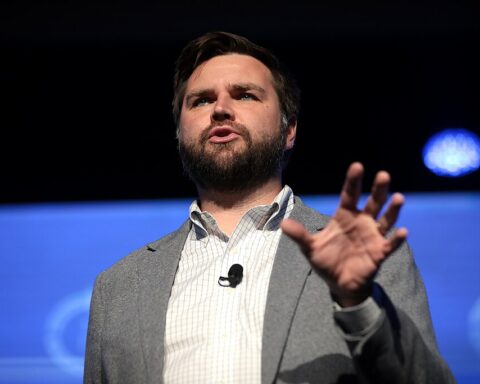
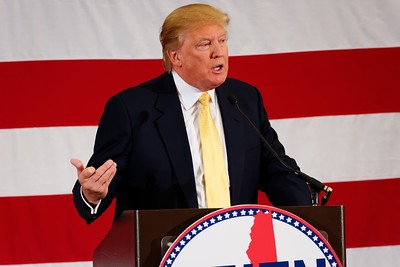
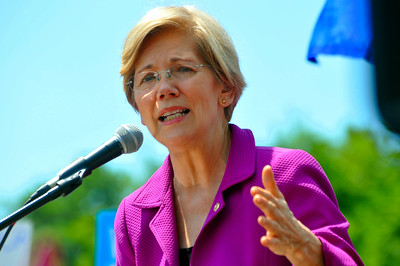
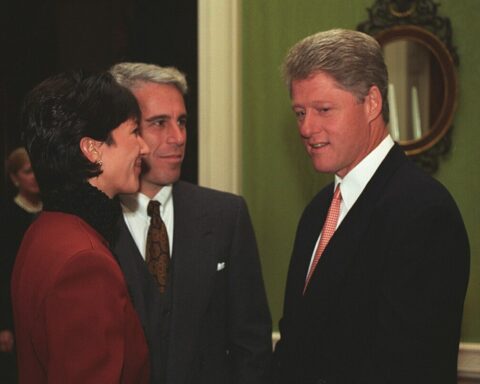
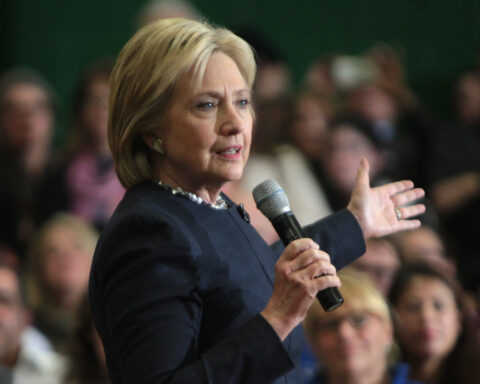
Not true. Vance and De Santis would be far stronger because De Santis is far more experienced on a management level. He also has more supporters. Remember Rubio was a member of Paul Ryans “gang of eight”; not the most conservative group.
JD Vance is a supporter of Tucker Carlson. Carlson’s son even works for him. As long as Vance is associated with Carlson and does not publicly denounce him for his sick, Jew-hatred, Vance is in no-man’s land. I was once a supporter of Vance, but finding out about his association with Carlson makes him unelectable for me. Carlson is the reason I never donated to Charlie Kirk. I implored him to renounce him, but he never did, nor, unfortunately does his wife to this day.